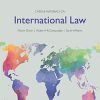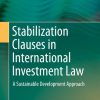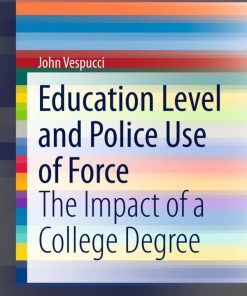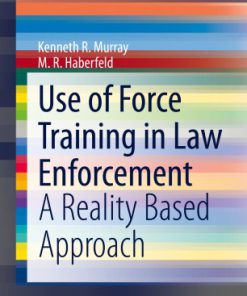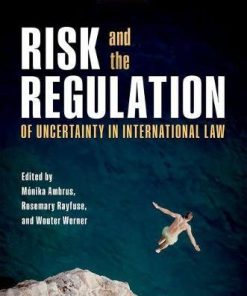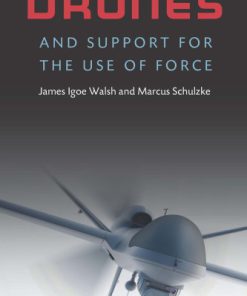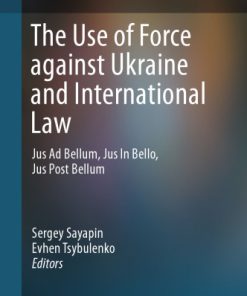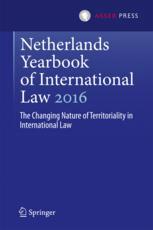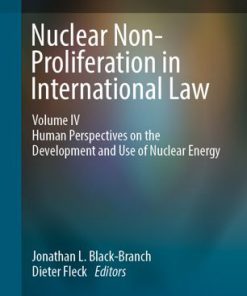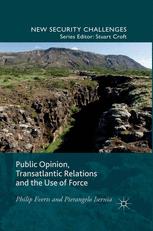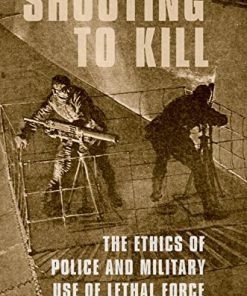The Use of Force in International Law 1st Edition Nicholas Tsagourias
$50.00 Original price was: $50.00.$25.00Current price is: $25.00.
This completed downloadable of The Use of Force in International Law 1st Edition Nicholas Tsagourias .
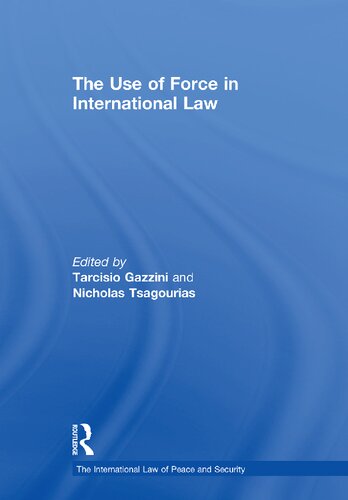
Instant downloaded The Use of Force in International Law 1st Edition Nicholas Tsagourias pdf docx epub after payment.
Product details:
- ISBN-10 : 1351539760
- ISBN-13 : 9781351539760
- Author : Nicholas Tsagourias
Table of contents:
Part I Ancient-Medieval
1 Victor Alonso (2007), ‘War, Peace, and International Law in Ancient Greece’, in K.A. Raaflaub (ed.), War and Peace in the Ancient World, New York: John Wiley & Sons, pp. 206–25.
2 Joachim von Elbe (1939), ‘The Evolution of the Concept of the Just War in International Law’, American Journal of International Law, 33, pp. 665–88.
3 Bassam Tibi (1996), ‘War and Peace in Islam’, in T. Nardin (ed.), The Ethics of War and Peace, New Jersey: Princeton University Press, pp. 128–45.
Part II League of Nations Era
4 J.L. Brierly (1930–32), ‘International Law and Resort to Armed Force’, Cambridge Law Journal, 4, pp. 308–19.
5 Arnold D. McNair (1936), ‘Collective Security’, British Yearbook of International Law, 17, pp. 150–64.
Part III United Nations Era
6 Hans Kelsen (1948), ‘Collective Security and Collective Self-Defense under the Charter of the United Nations’, American Journal of International Law, 42, pp. 783–96.
7 Josef L. Kunz (1951), ‘Bellum Justum and Bellum Legale’, American Journal of International Law, 45, pp. 528–34.
8 Thomas M. Franck (1970), ‘Who Killed Art. 2(4)? Or: Changing Norms Governing the Use of Force by States’, American Journal of International Law, 64, pp. 809–37.
9 Louis Henkin (1971), ‘The Reports of the Death of Article 2(4) Are Greatly Exaggerated’, American Journal of International Law, 65, pp. 544–48.
10 Oscar Schachter (1986), ‘In Defense of International Rules on the Use of Force’, University of Chicago Law Review, 53, pp. 113–46.
11 Jean Combacau (1986), ‘The Exception of Self-Defence in U.N. Practice’, in A. Cassese (ed.), The Current Legal Regulation of the Use of Force, Boston, MA: M. Nijhoff, pp. 9–38.
12 Derek Bowett (1972), ‘Reprisals Involving Recourse to Armed Force’, American Journal of International Law, 66, pp. 1–36.
13 Roberto Barsotti (1986), ‘Armed Reprisals’, in A. Cassese (ed.), The Current Legal Regulation of the Use of Force, Boston, MA: M. Nijhoff, pp. 79–110.
Part IV Terrorism, Weapons of Mass Destruction and Information Warfare
14 Abraham D. Sofaer (2003), ‘On the Necessity of Pre-emption’, European Journal of International Law, 14, pp. 209–26.
15 Christopher Greenwood (2003), ‘International Law and the Pre-emptive Use of Force: Afghanistan, Al-Qaida, and Iraq’, San Diego International Law Journal, 4, pp. 7–37.
16 Christian J. Tams (2009), ‘The Use of Force against Terrorists’, European Journal of International Law, 20, pp. 359–97.
17 Michael N. Schmitt (1998–99), ‘Computer Network Attack and the Use of Force in International Law: Thoughts on a Normative Framework’, Columbia Journal of Transnational Law, 37, pp. 885–937.
18 Christopher C. Joyner and Catherine Lotrionte (2001), ‘Information Warfare as International Coercion: Elements of a Legal framework’, European Journal of International Law, 12, pp. 825–65.
Part V Humanitarian Intervention and the Responsibility to Protect
19 Jean-Pierre L. Fonteyne (1973–74), ‘The Customary International Law Doctrine of Humanitarian Intervention: Its Current Validity under the U.N. Charter’, California Western International Law Journal, 4, pp. 203–70.
20 Terry D. Gill (2004), ‘Humanitarian Intervention: Legality, Justice and Legitimacy’, Global Community, 4, pp. 51–75.
21 Spencer Zifcak (2009), ‘The Responsibility to Protect’, in United Nations Reform: Heading North or South?, London: Routledge, pp. 105–27, 200.
22 Carlo Focarelli (2008), ‘The Responsibility to Protect Doctrine and Humanitarian Intervention: Too Many Ambiguities for a Working Doctrine’, Journal of Conflict and Security Law, 13, pp. 191–213.
People also search:
does the us follow international law
can international law be enforced
what is the use of force in international law
should the us use military force to protect freedom
does international law work
You may also like…
Politics & Philosophy
Politics & Philosophy - Social Sciences
Use of Force Training in Law Enforcement: A Reality Based Approach Kenneth R. Murray
Politics & Philosophy
Risk and the Regulation of Uncertainty in International Law 1st Edition Monika Ambrus
Politics & Philosophy - Government & Politics
Drones and Support for the Use of Force 1st Edition James Igoe Walsh
Politics & Philosophy - Social Sciences
Jurisprudence & Law - Constitutional Law
Politics & Philosophy
Public Opinion Transatlantic Relations and the Use of Force 1st Edition Philip Everts
Politics & Philosophy


